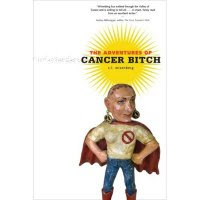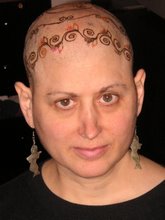

She said that in East Germany they got Russian-accented calls from strangers saying they heard the wall was going to fall down. This was before the Germans knew. They said that with the collapse of the USSR, anti-Semitism came out. They said that after the end of Communism a quarter of a million Russian Jews came to Germany. The press assumed they were on their way to Israel, that they wouldn't settle in the land of the murders. They did.
They said one year more Russians immigrated to Germany than Israel. They said most of the Russians were atheists. They said many of them were old. They said they would not and will not integrate. They said they live in settlements around the country, closed and separate like Chinatowns, with their own newspapers and stores and gathering places. They said they brought the Soviet Union with them. They said they were used to a paternalistic state. They said the Jews had been engineers and teachers and doctors and economists. There were few jobs in Germany and the Russians thought most of the available ones were beneath them. They said the Russians were forced to join the official Jewish communities. They said the Russians weren't forced to join them. They said the Russians were forced to spread out to all the German regions. They said they were not forced.
(She said, Shh, shh, such loud voices and arguing on Shabbat!)
They continued. They said there are about 28,000 German Jews who have registered with the official community. They said there are Russians who come to synagogue for the free meals. They said many Russians refused to be circumcized or to have bar and bat mitzvahs. They call them Russians though they are not all from that giant republic. They said there aren't enough Jewish nursing homes for them. They said the German Jews are overwhelmed. They said the German Jews were used to their German-Jewish life, their language, their traditions, their tragedy. They said the Red Army veterans like to meet together and argue over who suffered most in the Great Patriot War. They said Germany wasn't built for receiving immigrants. They said no one knows exactly how many have come. They said the German Jews expected 250,000 Natan Sharanskys, davening. They said about half of the Russians have joined the Jewish community.
They said the Jewish infrastructure collapsed in the Shoah. They said that young, creative Americans and Israelis flock to Berlin and some of them stay. They said that most immigrants have to prove they've studied German, but not the Russians, or the Americans, or Japanese, or Canadians, and other privileged groups. They said the immigrants were considered Jewish in the USSR if they had a Jewish father, but according to Jewish law in Germany, they are Jewish only if they had a Jewish mother; they said that about half of them were not really Jewish. They said after the Russians settled, they sent for their non-Jewish families. They said that if Russians divorce, the non-Jewish spouses might be deported.
They said the German Jews don't want to complain about the Russians in public, they don't want the non-Jews to hear. They don't want to air their dirty linen. They said nobody will criticize the official German Jewish communities in public, either. They said the official Catholic, Protestant and Jewish communities get government funding, not proportional to their numbers. (The Jews get more than their share.) They said the real scandal is that the millions of Muslims don't get state funding. They said it was because they had no spokesmen. They said the older Russians are isolated, and the young distance themselves from the past. They said the young go out into the German world and act as interpreters.
(They raised their voices. She said again, Shh, shh, it's Shabbat, and held her jacket up to her mouth, as if for protection.)
They said the law has tightened so fewer of them are coming.
They said without this immigration we wouldn't talk about Jewish life today in Germany. They said we're the last German Jews.








